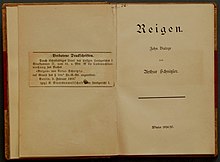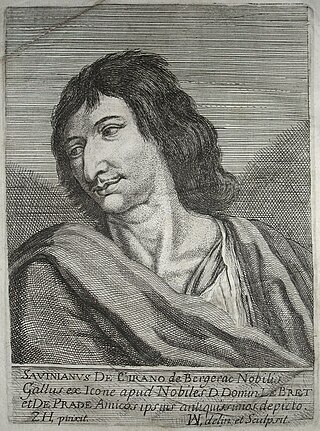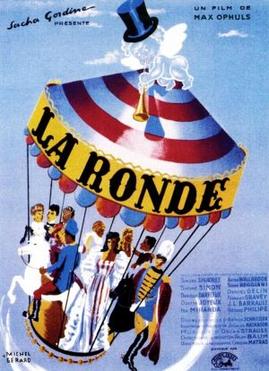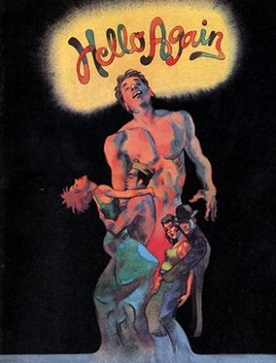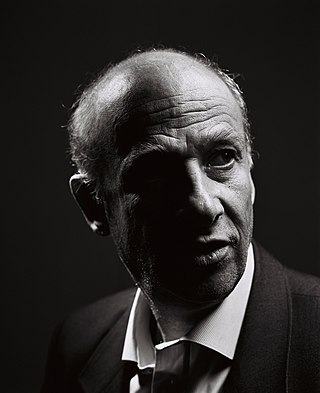Theatrical adaptations
In 1981 the theatrical rights to Schnitzler's play fell temporarily out of copyright and several stage adaptations were crafted and performed.
In 1982 the play had its British premiere at the Royal Exchange, Manchester directed by Casper Wrede with William Hope as The Young Man, Cindy O'Callaghan as The Nursemaid and Gabrielle Drake as The Young Married Woman.
In 1989, Mihály Kornis re-located its action to communist-era Hungary, rendering the Young Gentleman and the Husband as communist politicians. Michael John LaChiusa's musical adaptation Hello Again was produced off-Broadway in 1994. David Hare's The Blue Room re-located its action to contemporary London, where it was first staged at the Donmar Warehouse in 1998. A group-written version, set on an Australian Federal election night and Sydney Mardi Gras, and presented as a part of the Sydney Festival in January 2002, 360 Positions in a One Night Stand, by Ben Ellis, Veronica Gleeson, Nick Marchand, Tommy Murphy, and Emma Vuletic, [6] and directed by Chris Mead. [7] There have been four notable gay versions of the story: Eric Bentley's Round 2 (1986) is set in New York in the 1970s; Jack Heifner's Seduction and Michael Kearns's pro-safe-sex piece Complications (2004) (Complications was remade as Dean Howell's film Nine Lives); and Joe DiPietro's Fucking Men (2008) (which is set in contemporary New York).
A version of the play appeared on Broadway in New York City in 1998; it was called "The Blue Room" and starred Nicole Kidman. [8]
Suzanne Bachner created an adaptation examining 21st-century mores, including, straight, gay, and bisexual characters entitled Circle. Circle opened its five-month off-Broadway run at The Kraine Theater on February 15, 2002, Horse Trade Theater Group presenting The John Montgomery Theatre Company production.
A new musical gay version, written by Peter Scott-Presland with music by David Harrod, ran at the Rosemary Branch Theatre in London in March–April 2011.
Dood Paard, the Amsterdam-based avant-garde theater collective, presented Reigen ad lib at the Peter B. Lewis Theater of the Guggenheim Museum in New York in April 2011.
A new translation, translated by Lukas Raphael, directed by Joel Cottrell and designed by Amber Dernulc set in 1953, opened at The White Bear in London in August 2011.
A new contemporary adaptation, by American playwright Steven Dietz, is called "American la Ronde". This version hews to the Schnitzler structure but updates the roles to more modern archetypes. It also leaves the gender of all roles at the discretion of the producing theatre. "American la Ronde" is published by Dramatists Play Service, New York. This adaptation, under its previous title 360 (round dance), was given a workshop production at the University of Texas at Austin in 2011. [9]
The dramatic structure of the play has been utilized by longform improv ensembles. [10] A series of two-person improvised scenes are interwoven in the same way as Schnitzler's characters are. The form was first used by Craig Cackowski in Chicago in the mid-1990s. [11]
in February 2017, a new adaptation written and directed by Max Gill was first staged at The Bunker Theatre, London. [12] The cast featured Alexander Vlahos, Lauren Samuels, Amanda Wilkin and Leemore Marrett Jr. In Gill's new version, a gender-fluid text meant that any part could be played by any actor, regardless of gender. [13] The roles were assigned each night in between scenes by a 'La Ronde' or Wheel of Fortune. There were over 3000 possible realisations of the play. The text is published by Oberon Books. [14]
